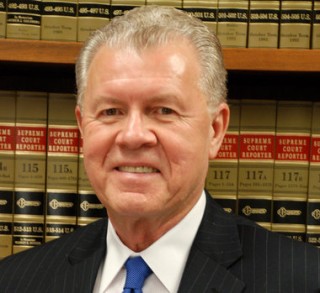
Will the new von der Leyen Commission deliver on climate policy?
Yesterday, during its first plenary session, the newly elected European Parliament confirmed Ursula von der Leyen as President of the European Commis...
News

Publish date: December 9, 2014
News
NEW ORLEANS – Oil giant BP suffered a major legal setback in trying to cap how much it will pay under a 2012 settlement to thousands of individuals and businesses along the Gulf Coast when the US Supreme Court Monday rejected the company’s request to review earlier court decisions that favored plaintiffs.
BP’s central complaint was that lower courts allowed people who were never hurt by the 2010 spill to file claims. But critics here on the Gulf said BP was just trying to rewrite the settlement terms and limit its liability. The US high court turned away the complaint without comment.
There was no local sympathy to be found for BP among New Orleanians interviewed by Bellona Monday, all of whom have been somehow impacted by the spill – and all of whom would gladly buy tickets to a public corporate bloodletting.

“Sure, I’m still on welfare for no reason at all after loosing my [sanitation consulting] business when the oil spill hit,” said Marcus Avery Jones, who spoke with Bellona in the city’s French Quarter. “Let those oil millionaire suits feel some of my pain.”
Michael Devaraux, a bartender at the Lafitte Guest House and Blacksmith Bar and Grill on Boubon St. was also unsparing.
“A British company obviously knows it had nothing to do with our empty rooms and talbles in the height of our tourist season,” he said. “I guess getting a migraine from the smell of crude burn off just wasn’t the vogue vacation idea that year.”
‘A huge victory’
Plaintiffs’ attorneys Stephen J. Herman and James P Roy said in a statement that Monday’s “ruling is a huge victory for the Gulf, and should finally put to rest BP’s two-year attack on its own settlement.
“With its order, the Supreme Court held — as had the lower courts — that BP must stand by its word and honor its contract,” said the attorneys.
Senior vice president of US communications and external affairs for BP, Geoff Morrell, issued a statement saying the company is still concerned that awards are being made “to claimants that suffered no injury from the spill and that the lawyers for these claimants have unjustly profited as a result.”
Claimants should file now
According to Tom Young, a Florida attorney who filed an amicus brief with the Supreme Court opposing BP’s appeal, business owners and individuals that experienced a loss of profit or earnings tied to the incident now have six months to file for compensation.
“One would be hard pressed to identify too many Gulf area businesses that did not endure some loss, small or large, that related in some way to the disaster,” wrote Young in his Legal Examiner Blog, which has closely followed the judicial aspects of BP’s liability. “A loss is a loss and BP has agreed to compensate all those so affected. With today’s decision, the Supreme Court has confirmed this arrangement.
BP has been pursuing a number of different routes to avoid paying fines and compensations related to the disaster. In November, BP asked a federal judge to cap the amount of spill-related fines at $12.3 billion — almost a third less than the amount US prosecutors are seeking, the Feulfix website reported.
The original 2012 agreement
BP signed the settlement agreement in 2012, but has since made the claim that its interpretation is exposing the company to compensation payments to claimants who can’t prove damages.
The 2012 settlement is separate from the environmental and criminal penalties relating to the spill, which are undergoing court proceedings of their own. BP estimated it will pay at least $9.7 billion to plaintiffs, about $2.3 billion of which has already been paid, Reuters reported.
In the rejected appeal it submitted to the US Supreme Court, BP claimed that it had made more than $600 million in illegitimate payments to claimants not actually harmed by the spill.

Judge Carl Barbier’s federal district court in New Orleans, and the 5th US Court of Appeals upheld the settlement earlier this year before the Supreme Court refused to hear it, according to a chronology of the filings by ThinkProgress.
The power of propaganda
BP has meantime been engaged in a huge, somewhat contradictory public relations push in the US in an effort minimize the impacts of the spill, while at the same time extolling the extent of is extensive cleanup efforts.
In October, BP spokesman Morrell wrote a lightly veiled advertisement for the company on the influential Politico news website entitled “No, BP Didn’t Ruin the Gulf.”
The piece was originally run as an “article” by Politico’s editors. Readers’s complaints eventually compelled the publication to slap an “opinion” label across Morrell’s piece and identify him as a BP’s VP.
Morrell’s piece asserted that environmentalists were overblowing the aftermath of the Deepwater Horizon spill because the Gulf of Mexico has an “inherent resilience” to oil spills. The BP spin doctor-come-reporter also wrote that BP“should not be accountable for damages caused by the acts of others, or those conjured up by opportunistic advocacy groups.”
Politico, as pointed out by ThinkProgress, had on October 13, 2013 run a piece by National Audubon Society president David Yarnold called “What BP Owes America,” – who the publication went out of its way to identify as an “opinion contributor.”
The thrust of Yarnold’s piece was that BP had backtracked on responsibility for the enormous environmental damage it caused the Gulf – an opinion that, here in New Orleans and on the Gulf – is hardly a point of controversy.
Politico has since the BP advertorial rejected out of hand or simply ignored without comment submissions from Bellona and other organizations and writers contradicting BP’s claims that it has fully cleansed the Gulf.
Politico editor Susan Glasser has over the past several months failed to comment to Bellona via email as to why this is the case.
Whither BP’s settlement?
Originally, BP estimated it would pay $7.8 billion to settle claims under the 2012 agreement it tried to fudge with the US Supreme Court. But now the company says it doesn’t know how much the agreement will cost.
BP is also facing $18 billion in federal fines under the Clean Water Act after New Orleans US Federal District Judge Carl Barbier ruled that BP’s “gross negligence” and “willful misconduct” were to blame for 2010’s massive Deepwater Horizon accident and oil spill in the Gulf.
Judge Barbier reinforced his findings when he rejected BP’s request for a new trial. The gross negligence ruling exposes BP to maximum fines that could reach $18 million, which could be imposed if the judge finds that the disaster spilled more than four million gallons into the Gulf.
Tallying up environmental damage
The $18 million figure is based on multiplying the estimated number of barrels of oil spilled by a fine of $4,400 per barrel – four times higher than the $1,100 federal fine levied for barrels spilled simple negligence.

Independent scientists found the Deepwater Horizon spill belched 4.9 million barrels of oil into the Gulf. BP submitted in October – to general laughter in the local press – that it only spilled 2 million barrels, and has since been working to jigger that figure down here in the New Orleans courtroom, something one observer involved in the case, who asked to remain anonymous, told Bellona was “an argument about how many angels could dance on the head of a pin.”
The lasting impacts of the Deepwater Horizon spill on the Gulf and its communities are still being added up, but the forecast is bleak. In October, research published in the Proceedings of the National Academy of Science documented a 1,235-square-mile “bathtub ring” of oil on the ocean floor where 10 million gallons of oil settled and coagulated after the spill.
This is consistent with figures cited to Bellona by Scott Porter, a diver, marine biologist and oil spill consultant with the Louisiana-based Ecorigs.
His studies of coral, as well as dives along the seabed of Louisiana’s east coast have documented some 10 -15 million gallons of tar matted oil and several million more in still in the water column.
And last week researchers at Auburn University in Alabama published findings that BP oil is still trapped in the sand beaches of the Gulf states, , the Associated Press reported.
At the very least, these slowly emerging reports are offering a strong contradiction to both the US government and BP’s claims that there is little to any oil left in the Gulf of Mexico from the Deepwater Horizon blowout.
Meanwhile, Gulf oyster harvests have dropped of a cliff since 2010, with catches down as much as 93 percent in numerous areas throughout the Gulf. Other sea life – such seafood staples as shrimp and crabs – are five years on showing hideous mutations and cancerous growths.
“We’re a long way from knowing what the full long term environmental impact the BP spill in the Gulf will have. But both when it comes to pollution levels and ecological damage it seems obvious that current estimates of these effects will increase, not decrease, like BP is trying to suggest,” said Karl Kristensen, an adviser on industrial pollution with Bellona. “Bellona is encouraged by the fact that the Supreme Court has decided to shelve BP’s attempt to dodge its responsibility to Gulf citizens. We see this as a sign that the government is beginning to realize how devastating the actual long term consequences for the region unfortunately are and will continue to be.”

Yesterday, during its first plenary session, the newly elected European Parliament confirmed Ursula von der Leyen as President of the European Commis...

From July 1st, 2024, to December 31st, 2024, Hungary is holding the Presidency of the Council of the European Union (EU), following Belgium’s tenure....

In October 2023, Bellona Europa announced a new FedEx-backed initiative Ports2Decarb – a project aiming to maximise the role of European sea and rive...

Bellona, together with other 29 members of the industrial carbon management community and umbrella organisations, express its support to the inclusio...
Get our latest news